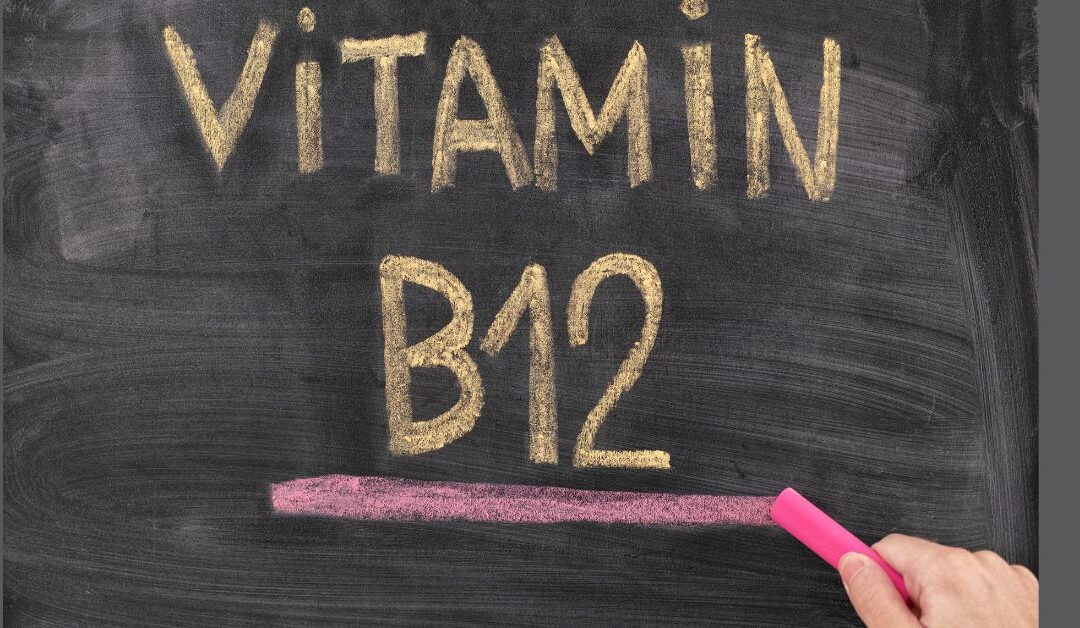B12 on a Vegan Diet how to Navigate
Being a vegan or following a plant-based lifestyle is a wonderful choice for your health, the environment, and animal welfare. However, it’s crucial to be well-informed about certain nutrients that may be lacking in a vegan diet. One such nutrient is vitamin B12. In this blog post, we will explore the significance of vitamin B12 for vegans and provide valuable insights on how to ensure optimal intake of this essential nutrient within a plant-based framework. Let’s dive in by answering the most common questions around B12 intake.
Do vegans really need vitamin B12?
Absolutely! Vitamin B12 is crucial for everyone including vegans. It supports the nervous system, aids in red blood cell production, and promotes overall well-being. Neglecting B12 intake can lead to anomia, neurological issues, and other health complications. Vegans must prioritize meeting their B12 requirements for optimal health.

Source: b12-vitamin.com
The consequences of vitamin B12 deficiency
Vitamin B12 deficiency can have serious consequences on your health. Symptoms may include fatigue, weakness, pale skin, shortness of breath, tingling sensations, and cognitive difficulties. If left untreated, it can lead to anomia and irreversible neurological damage. It’s vital for vegans to prioritize B12 intake to prevent deficiency.
Understanding the benefits of vitamin B12
Vitamin B12 plays a critical role in the body’s functioning. It is essential for the production of red blood cells, DNA synthesis, and the proper functioning of the nervous system. Adequate B12 levels contribute to еnergy production, cognitive function, and overall well-being. It’s a nutrient that shouldn’t be overlooked.
Do plant-based foods contain vitamin B12?
Unfortunately, naturally occurring vitamin B12 is limited in plant-based foods. While some plant-based products claim to provide B12, they often contain inactive forms or analogies that our bodies cannot efficiently utilize. It’s important for vegans to look beyond plant sources in order to meet their B12 requirements.
While some vegetarian diets, including those that contain dairy and eggs, may have better B12 availability, vegetarian sources alone may not provide sufficient amounts. Some fermented products like tempeh or miso may contain traces of B12, but they are unreliable sources for meeting your B12 requirements. Vegans must focus on fortified foods or supplements for a consistent B12 intake.
How do vegans get sufficient B12?
Vegans can ensure adequate B12 intake through strategic dietary choices. Fortified plant-based foods, such as dairy alternatives, breakfast cereals, and nutritional yeast, can be valuable sources of B12.
What is the best source of vitamin B12 for vegans?
When it comes to meeting your B12 needs, vegan-friendly supplements are the most reliable source. Look for reputable brands offering vegan-specific B12 supplements in the form of cyanocobalamin or methylcarbylamine. Consult with a healthcare professional to determine the right dosage for your individual requirements.
Can vegans access vitamin B12 without taking supplements?
Getting adequate B12 without supplements can be challenging for vegans. While small amounts of B12 can be produced by bacteria in the gut, they are typically located too far down the digestive tract to be absorbed effectively. Supplementation or fortified foods are recommended to ensure reliable B12 levels. Some products like nutritional yeast are fortified with B12. Always read the label to see if the brand you are using meets your B12 needs.
How do I get B12 as a vegan without supplements?
To increase B12 intake without supplements, vegans should rely on fortified plant-based foods. Incorporate items like plant-based milks, cereals, and nutritional yeast regularly into your diet. Ensure you check labels to confirm adequate B12 fortification for optimal results.
Strategies for incorporating vitamin B12 into a vegan lifestyle
For vegans, ensuring sufficient B12 intake can be achieved through various strategies. Regularly incorporating fortified plant-based foods into meals, such as plant-based milks, breakfast cereals, and nutritional yeast, is an effective approach. Additionally, consider taking a daily or weekly B12 supplement specifically formulated for vegans. Remember to consult with a healthcare professional to determine the right dosage for you.
The roll of regular testing and monitoring
Regular testing is essential for vegans to monitor their B12 levels. This allows for early detection of any deficiencies and ensures appropriate adjustments to the supplementation or dietary regimen. Consult with a healthcare professional to establish a testing schedule that aligns with your specific needs.
The power of education and awareness
Education and awareness are key in promoting optimal health for vegans. Stay informed about thе importance of B12 and thе best strategies for meeting your needs. Continually educate yourself about the various plant-based sources of B12 and make informed decisions to support your well-being.
Final thoughts
As a vegan, understanding the significance of vitamin B12 is vital for maintaining your well-being. While plant-based sources of B12 are limited, you can ensure optimal intake through supplementation or fortified foods. Prioritize your health by incorporating reliable B12 sources into your diet and consult with a healthcare professional for personalized guidance. With a well-rounded approach to B12, you can thrive on your vegan journey and embrace the full potential of a plant-based lifestyle.
With Love,
Jimmy

